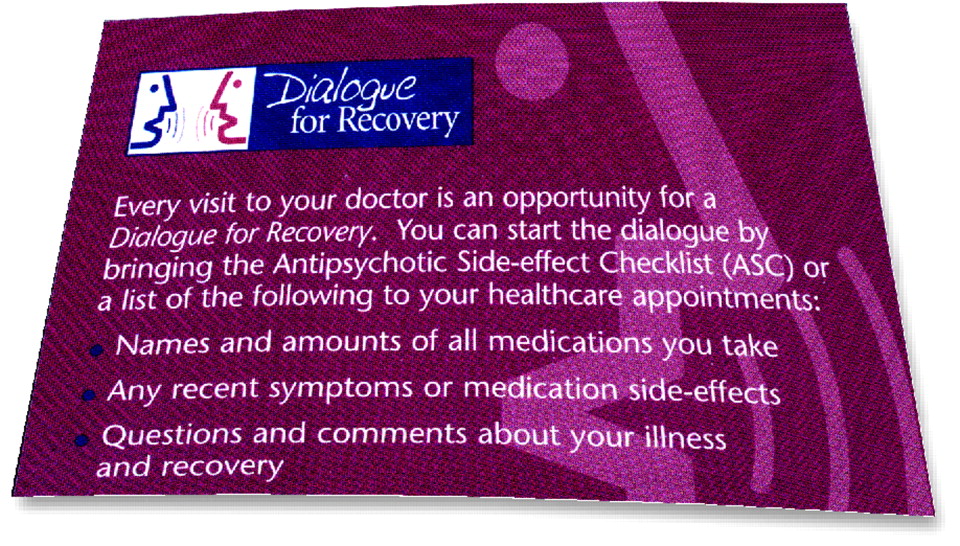NMHA Hopes Communication Toolkit Will Boost Treatment Adherence
In May the National Mental Health Association (NMHA) launched its “Dialogue for Recovery” program, aimed at educating patients, psychiatrists, and mental health professionals on how to communicate more effectively.
The program includes a video, a new tool called the Antipsychotic Side-Effects Checklist (ASC), fact sheets on schizophrenia, and informational sheets for both patients and their families.

The “reminder card” in the Dialogue for Recovery kit from the National Mental Health Association gives tips to patients on how to make the most of their time with the physician.
“Millions of Americans live with serious mental illnesses, but recent medical advances and improved community-support programs allow most to recover and lead productive lives in their communities,” NMHA CEO Michael Faenza said in a press release detailing the project. “Unfortunately, side effects caused by antipsychotic medications can be a major impetus for patients to discontinue their treatment, which ultimately hinders their recovery.”
In some studies, researchers have estimated that anywhere from 50 percent to 75 percent of patients with severe and persistent psychiatric illness, such as schizophrenia, stop taking their medications at some point during the course of their illness. The reason, studies indicate, is because of medication side effects.
The ASC takes the patient or their family member through a series of 17 questions designed to elicit communication with the physician about the patient’s illness and prognosis and how well he or she is tolerating medication.
The video presents the stories of six patients who have “learned to maintain a dialogue for recovery.” Despite their serious mental illness, they have overcome many obstacles, including the struggle with medication side effects, and are leading productive lives.
“Dialogue for Recovery” and the ASC tool, Faenza noted, “will help consumers of mental health services work together with their entire health care team to determine their best treatment plan, so they can recover faster and lead fuller lives.”
“Dialogue for Recovery,” supported by an unrestricted educational grant from AstraZeneca, was developed by a steering committee chaired by Peter Weiden, M.D., of SUNY Health Sciences Center in Brooklyn, and Alexander Miller, M.D., of the University of Texas Health Sciences Center in San Antonio.
The program will be distributed through the NMHA’s 340 affiliates and via its Web site at www.nmha.org. ▪



